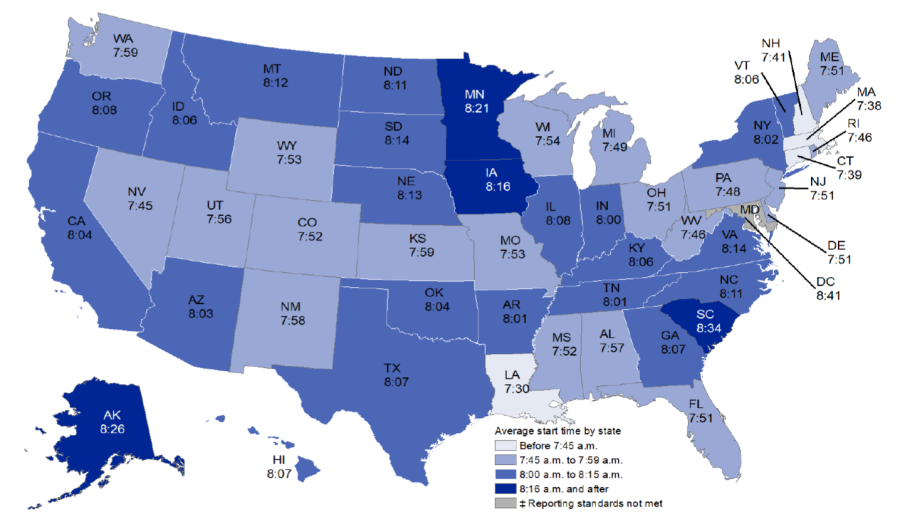Is School Too Early?
A student’s health should not have to be impaired in order for them to succeed in school. Putting that decision onto the students, by not adapting to their natural needs, is a systemic issue. ..
September 8, 2022
Schools all over the United States start their days in the early morning hours, and Texas is no exception. The statewide average starting time for its public high schools is 8:00 a.m., according to the National Center for Education Statistics. An average starting time only an hour after sunrise is bound to cause issues that are worse than just inconvenience for students.
The root of these issues is that in order for students to meet their school’s starting time, they have to wake up much earlier than class starts. First period at FMHS starts a little later than average, at 8:20 a.m. However, students in certain extracurricular activities have to wake up and begin their day hours long beforehand. Seniors on the swim team, for instance, have to be ready to start practice by 6:30. “I usually wake up at 5:30 to start my day,” Leo Alicea, a member of the team, said. “I’m not exactly ready to learn at 8:20 in the morning.” The early start of the school day and little breaks given between first period and extracurriculars disrupt the much needed sleep patterns for young students.
Schools requiring students to learn early in the morning obstructs that pattern. The Centers of Disease Control (CDC) reports that teenagers need an average of 8-10 hours of sleep to function at their best, but out of a group of 30 randomly selected students at FMHS, 26 reported that they get less than 8 hours of sleep each day during the school week. Is it a coincidence that 28 out of that same group of students agreed that school starts too early?
Feeling tired all day is a surefire way to hinder learning. Biologically, teenagers tend to wake up between 8 a.m. and 9 a.m. On average, as children go through puberty, their bodies stay up (and wake up) 2 hours later than before. Their bodies waking before their minds for school causes a clash in their ability to focus and learn, but is the early starting time of school really the issue?
“I don’t think school starting at 8:20 in the morning is an issue,” senior Emma Curley said, ”School starting earlier means it ends earlier [allowing me to] take longer shifts at work throughout the week that I otherwise wouldn’t be able to.” Although a later end time for schools would make it harder to get good pay hours for a job, the contrary could lead to the overworking of students. The decision of an increase for productivity through a sacrifice of health is always up to the individual. That, however, shouldn’t necessarily be the case. A student’s health should not have to be impaired in order for them to succeed in school. Putting that decision onto the students, by not adapting to their natural needs, is a systemic issue.
It is all too common in our society to give up health and personal needs for school. While each student is ultimately in control of their health and can achieve a school-life balance, the school system still acts as a hindrance to that goal. Fundamentally, school starting earlier than when teenagers are expected to wake up fully should not be as widely accepted as it is. Changing the standard starting time for high schools in the U.S. to be after 9 a.m. would be a beneficial step in allowing students to reach their full potential without messing up their body’s schedule. Why adapt to a hindrance rather than remove it?


